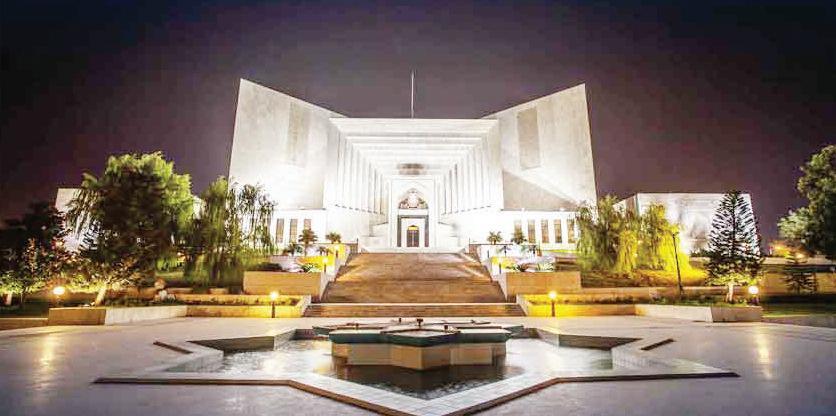

Justice Munib AkhtAr decl Ares sc ruling 'illegAl' in Article 63-A review cAse

Article 63-A review case Earlier Justice Akhtar had objected to the formation of benches and the judges committee Justice Mansoor Ali Shah had also previously raised concerns about the amended ordinance under which the judges’ committee was formed Justice Munib Akhtar also skipped a hearing on a petition seeking a review of the 2022 verdict on the defection clause under Article 63-A of the Constitution
PTI raises objections to bench formation in SC ’s ar ticle 63- A review case
ISLAMABAD: Pakistan Tehreek-eInsaf (PTI) has raised formal objections regarding the constitution of the Supreme Court bench hearing the review case on the interpretation of Article 63-A A petition was filed by PTI s lawyer Barrister Ali Zafar challenging the bench s formation In the petition, Zafar argued that the bench was not constituted in accordance with Section 2 of the Act under the Presidential Ordinance which requires the Judges’ Committee to consist of three members
According to the law a minimum of three judges is necessary to decide on the composition of the bench
The petition further stated that the bench can only be constituted through the collective wisdom of three judges
However, the application pointed out that only two judges instead of the required three were present at the committee meeting on September 23 as Justice Mansoor did not attend
As a result, the petition contends that the decision made by two judges cannot be considered valid under the law, rendering the formation of the bench improper
During the proceedings Chief Justice Qazi Faez Isa responded to the objections raised by Barrister Ali Zafar stating I do not agree with you S TA F F R E P O R T
The review plea, filed by the Supreme Court Bar Association (SCBA), was set to be taken up by a five-member larger bench at 11:30am on Monday Headed by Chief Justice of Pakistan (CJP) Qazi Faez Isa the bench was supposed to comprise Justices Akhtar, Aminuddin Khan, Jamal Khan Mandokhail and Mazhar Alam Khan Miankhel Justice Akhtar ’s decision comes against the backdrop of his removal from the three-judge committee established under the Supreme Court (Practice and Procedure) Act 2023 after the promulgation of an amendment ordinance granting the CJP authority to select any judge as the committee’s third member In a letter Justice Mansoor Ali Shah a member of the three-judge committee had announced boycotting the panel over unfettered and arbitrary discretion vested in CJP s role, while protesting
Justice Akhtar s removal In response to Justice Shah, CJP Isa listed several reasons for Justice Akhtar’s removal from the committee including his alleged indifference to a piling backlog of cases On Monday, all judges except Justice Akhtar appeared in the courtroom Justice Isa noted that the judge had penned him a letter stating “I cannot be a part of this bench” In his letter Justice Akhtar stated that he could not be a part of the bench formed by the committee under the Practice and Procedure Ordinance The chief justice said Justice Akhtar was present at the apex court, and adjourned the hearing till Tuesday saying he would ask the judge to be a part of the bench as the review petition ought to be heard by a five-member bench as per the original case

ISLAMABAD: Pakistan Tehreek-eInsaf (PTI) founder and former prime minister Imran Khan has announced a series of protests in support of the judiciary beginning in Mianwali Faisalabad and Bahawalpur on October 2
Addressing his supporters through a statement issued from Adiala Jail on Monday, Khan said, We will protest at Minare-Pakistan in Lahore on October 5, and on October 4, Friday, we will gather at DChowk [in Islamabad] ” Khan warned of attempts to crush PTI through the socalled London Plan adding that his arrest was part of the broader scheme They want to break me in jail, but I am not afraid, and
neither should the people be, he remarked He emphasised that PTI s protests would remain peaceful, stating, “We have always protested peacefully, but this system has failed to protect us ” Khan also highlighted the treatment of women within the party mentioning Our women are languishing in jails An 80-year-old woman was charged, yet no one cared ” Khan voiced support for Khyber-Pakhtunkhwa Chief Minister Ali Amin Gandapur who has led a march towards Islamabad stating that Gandapur awakened the province s people and echoed his call for revolution STAFF REPORT
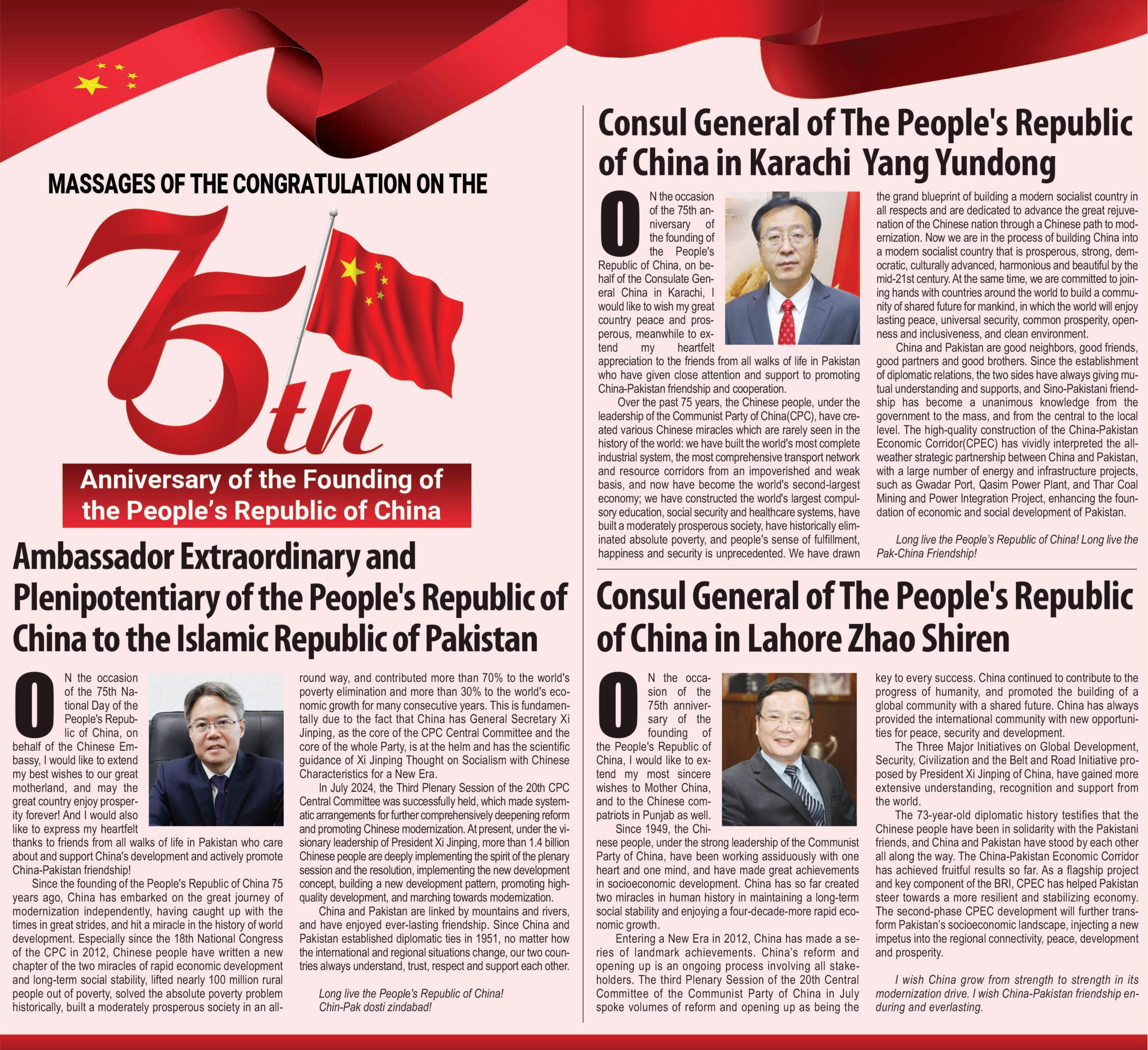

Islamabad High Court (IHC) has issued notices to the Federal Board of Revenue (FBR) and the Attorney General of Pakistan seeking their comments on the imposition of Federal Excise Duty (FED) on the transfer or allotment of immovable properties by developers and builders The court’s decision came in response to a petition filed by Defence Housing Authority (DHA) Islamabad which has challenged the legality of the duty under Table-III First Schedule of the Federal Excise Act, 2005 DHA Islamabad, a local authority involved in land sales and development,
filed the petition against the Federation of Pakistan represented by the Secretary Revenue Chairman FBR and Commissioner Inland Revenue of the Large Taxpayer Office, Islamabad The petitioner contends that the recent imposition of excise duty on property transfers is beyond the scope of the Federal Excise Act
The petition argued that the duty was imposed on property transactions through an amendment to Table-III of the Act, but no corresponding modification was made to the charging section of the Act, which governs the categories of goods and services subject to excise duty DHA Islamabad’s counsel highlighted that excise duty applies solely to goods and services asserting that immovable property does not fall into ei-
ther category The petitioner further claimed that the inclusion of property transfers under excise duty is legally questionable arguing that such transactions do not fit the definition of goods within the framework of the Act As a result, the petition challenges the vires (legal authority) of Table-III of the First Schedule In response to the petition the Chief Justice of the IHC issued notices to the FBR and other respondents to submit their replies Additionally, as the validity of a federal statute has been challenged the court ordered a notice under Order 27-A of the Civil Procedure Code (CPC) to be sent to the Attorney General for Pakistan to represent the state in the matter

HUBCO VENTURES INTO LITHIUM MINING AND BATTERY MANUFACTURING

HTowers, Mr Fawad Ahmad Khan, Group Director of Regulatory Strategy & Compliance (PTML), Mr Amer Shahzad DG Wireless Licensing
(PTA), and representatives from Jazz, Wateen, Transworld Associates, Cm Pak LDI Ltd, and the Frequency Allocation Board The CCP s Phase II Merger Review conducted under Section 11(6) of the Competition Act 2010 is focused on examining the market share dynamics and potential risks of market concentration As the review continues, the CCP all encourages stakeholders to provide their input
The next hearing is scheduled for October



COMMENT
Water scarcit y
WAT E R scarcity has become a critical challenge for Pakistan’s agricultural sector, posing significant risks to its longterm sustainability Despite vast tracts of arable land in regions like Balochistan and Punjab, the country has been unable to expand its cultivated area The key bottleneck is water a resource in increasingly short supply This water crisis, driven by a combination of factors, threatens to undermine the country’s food security and agricultural economy
Pakistan’s inadequate water storage capacity is one of the central issues Despite an increase in water flow from melting glaciers the country’s infrastructure is unable to capture and store sufficient volumes for agricultural needs Over the years Pakistan’s water storage capacity has dropped from 16 26 million acre-feet (MAF) to just 13 68 MAF leaving the country with a mere 30-day carryover supply By contrast India boasts a 170day buffer while Egypt enjoys an even more robust 700 days This lack of storage capacity limits Pakistan’s ability to mitigate the effects of both water shortages and flooding particularly as climate change accelerates glacier melt
Groundwater extraction is also a major concern Pakistan is the third-largest consumer of groundwater in the world following India and the United States even though it represents just 3% of the global population Groundwater extraction exceeds the natural replenishment rate particularly in rural areas where 73% of the land is heavily reliant on underground aquifers Unchecked withdrawals have led to the depletion of these critical water reserves pushing the country toward an unsustainable future
Outdated irrigation techniques such as flood irrigation exacerbate these problems Water losses through inefficient practices reduce the productivity of the country’s agricultural sector Rising temperatures another consequence of climate change are also playing a role Pakistan is warming at a faster pace than the global average with evapotranspiration rates increasing leading to further water loss from both soil and plants
The water crisis is no longer just a problem of tomorrow it is already constraining Pakistan s agricultural potential Without urgent reform in water management and infrastructure the country risks falling deeper into an agricultural and environmental crisis

Dedicated to the legac y of late Hameed Nizami Arif Nizami (Late) Founding Editor
M A Niazi Editor Pakistan Today Babar Nizami Editor Profit

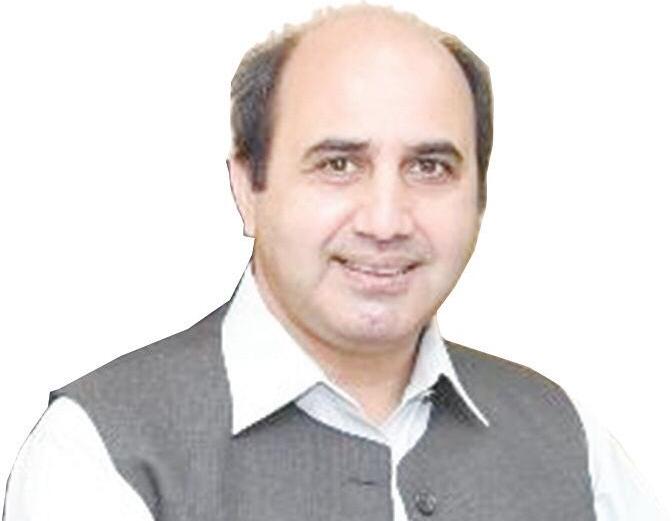
CH I L D labour in Pakistan represents a critical issue that affects millions of children, depriving them of their rights to a safe childhood education and healthcare Despite the existence of international agreements and national legal frameworks designed to eliminate this scourge the prevalence of child labour persists due to a complex interplay of cultural, socioeconomic, and enforcement challenges Current estimates suggest that approximately 12 5 million children in Pakistan aged between 5 and 14 are engaged in child labour reflecting a significant portion of the child population in this age group This alarming statistic underscores the urgent need for comprehensive action to address the issue
A vast majority of child labourers in Pakistan are found in rural areas, primarily working in the agricultural sector which employs the highest number of children In urban settings children are often seen toiling in small-scale workshops brick kilns and textile factories frequently exposed to hazardous conditions such as excessive working hours physical strain, and dangerous machinery These environments not only jeopardize their physical health but also impair their psychological development and future prospects According to the International Labour Organisation (ILO) the global figure for child labourers stands at 152 million with South Asia identified as a major hotspot Countries like Pakistan India Bangladesh, and Nepal report some of the highest rates of child labour in the region While efforts have been made to reduce child labour rates, progress has been uneven and many children remain trapped in exploitative conditions In response to this pressing issue Pakistan has implemented a range of measures aimed at combating child labour The Child Labour (Prohibition and Regulation) Act of 1986 alongside the Employment of Children Act of 1991, provides a regulatory framework for child labour More recently, the Child Protection Act of 2018 has enhanced protective mechanisms for children reflecting a commitment to uphold their rights National Action Plans have been established to improve educational access raise public awareness and strengthen enforcement mechanisms against child labour Initiatives such as the Child Labour Schools under Pakistan Bait-ul-Mal and the National Education Policy have been designed to provide financial support to low-income families improve school infrastructure and enhance teacher training Collaborating with international organizations like the ILO and UNICEF, Pakistan has sought to address child labour through research, policy development, and capacitybuilding initiatives Despite these measures, numerous
B a n g l a d e s h c r i s i s a n d i t s i m p l i c a t i o n s f o r P a k i s t a n
nomeen KaSSi
Hreplete with antirevolutionary movements and individuals like Klemens von Metternich of Austria who aimed to uphold supremacy of monarchy and suppress revolutionary uprisings in Europe Despite these efforts, revolutions have always prevailed and succeeded Revolutions are like fire; they start with a small spark and then spread quickly cov-
and government s overthrow Sheikh Hasina Wazed the longest-standing prime minister of Bangladesh confronted the protests from the student union She is the daughter of Sheikh Mujib-ur-Rahman, who played a key role in the formation of Bangladesh in 1971 Initially the anti-government protests began
political parties are trying to gain more youth support as the educated youth can create a sense of change The unemployed, educated male youth have been historically the initiators of rebellions and uprisings Historically Pakistani politics has been marked by student activism Even before the partition of the subcontinent educated male youth played a key role in the struggle for After the partition, students participated in politics and were key actors in protests against the government And withbeen ing with the emerging populist leaders Such events in the neighborhood strengthen the Pakistani youth to stand against the political system and bad governance which is alarming in the current political and security situations The issue arises when these students ideologies are unclear, leading them to blindly follow any charismatic leader, failing to address core issues causing political chaos in the country They fail to address or suggest any political
challenges hinder effective action against child labour
One of the most pressing issues is the weak enforcement of existing laws Insufficient monitoring and oversight often allow employers to exploit legal loopholes leaving children vulnerable to exploitation The informal sector, encompassing small workshops, agriculture, and domestic work, presents significant challenges for regulation and enforcement
Socioeconomic factors play a crucial role in perpetuating child labour High levels of poverty and limited access to education compel families to rely on the income generated by their children This economic necessity often outweighs the perceived benefits of education, leading to a cycle of poverty that is difficult to escape Moreover, cultural attitudes towards child labour often rooted in traditional practices contribute to its normalization within communities making it essential to engage in sustained awareness campaigns that highlight the importance of education To effectively combat child labour in Pakistan, a comprehensive and multifaceted approach is essential Strengthening legal frameworks is crucial, not only by enhancing existing laws but also by ensuring rigorous enforcement Increasing penalties for violators and improving the capacity of labour inspectors will help create a more accountable system Expanding educational opportunities is another vital aspect of this strategy By making education more accessible, particularly for marginalized communities, the cycle of child labour can be disrupted Initiatives aimed at improving school infrastructure providing scholarships and enhancing teacher training will be instrumental in encouraging families to prioritize education over work Addressing poverty through targeted economic development programs is also paramount Providing financial support to vulnerable families and creating job opportunities can alleviate the economic pressures that drive children into the workforce Moreover community-based programs can
or social reforms One of the reasons for this could be a lack of knowledge exclusiveness and less participation in students unions As a result, students fail to develop and understand the political and social fabric They are blank in ideology However, it is impossible to maintain a social and political vacuum for students The questioning youth is taking a key interest in the situation and demands change They are the future leaders; hence they play a significant role in shaping society and the political arena
To avoid such situations and pseudo-revolutions, engaging the youth in a positive and fruitful way is essential to make them an asset to the country rather than an unwanted unmanageable political burden Students unions with negative mindsets need to be managed The student unions based on ethnicities and sectarian basis are more volatile and deserve the attention of the state For any positive change, they should be encouraged These unions provide a platform for the youth to raise their voice and contribute to improving governance Unfortunately our ethnicity-based students union has taken the wrong direction of closing the gates of the institutions promoting propaganda without ascertaining the truth, and shouting against the perceived wrongdoers With proper knowledge and guidance, youth can become an important asset to the country and a step towards change against corruption and bad governance Pakistan can learn from Bangladesh s experience such as promoting youth engagement in politics and addressing corruption and unemployment
Ms Nomeen Kassi is a Research Assistant at Balochistan Think Tank Network Quetta
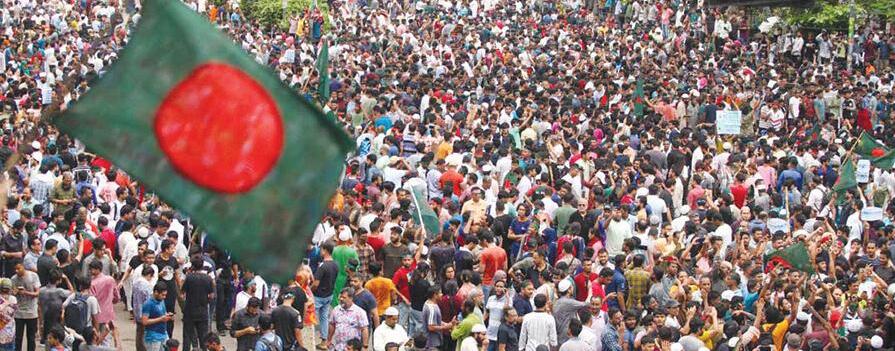
Rediscovering ancient rivers
Since Aurel Stein’s expedition in 1940 hundreds of Harappan sites have been identified in the now-dry Saraswati basin The rich technological artistic and cultural legacy of the Harappan civilisation laid the foundation for developing newer civilisations in the subcontinent DR KHATAUMAL MITHI
Coastal crime wave continues
BACK in 2022 a Scottish vlogger had uploaded a video on social media, show-ing him visiting the Seaview in Karachi, where a horseman defrauded him by asking Rs3 000 for a short ride After that video went viral on the internet, Karachi police had arrested three people
Unfortunately that video could not stop such incidents Recently I saw a post on social media where a person claimed that he and his friends were roaming around Seaview in the morning They saw empty chairs with no one nearby As they sat on the chairs three individuals suddenly came from nowhere, and asked them to pay the charges for using the chairs Moreover, they had hardly sat there for a couple of minutes, but were asked to pay an unfair amount per chair used Upon their refusal to pay, the three looters started threatening them rather aggressively The visitors had no choice but to give them whatever the amount they asked for Such incidents keep happening along the Seaview, but no one has ever stopped this nuisance Often the non-native people visiting Seaview are easily exploited by the goons operating in the area It is one of the serene places in Karachi, attracting thousands of visitors daily who come to enjoy the beauty of the sea and to relax in the cool sea breeze However, the government s lack of seriousness and will in addressing the issue encourages these thugs to loot the visitors Unfortunately, these fraudsters defraud people by selecting the target and then sending different people towards the victims, either asking them to buy some-thing or offering a ride
Sheikh Hasina Wazed, the longest-standing prime minister of Bangladesh, confronted the protests from the student union She is the daughter of Sheikh Mujib-ur-Rahman, who played a key role in the formation of Bangladesh in 1971 Initially, the antigovernment protests began in July among university students
Dr Zafar Khan SafDar
Cultural differences in the expression and treatment of depression
A comparative analysis between the western and eastern worlds
Dua
DEPRESSION The World’s Silent Pandemic - A Crisis Hidden in Plain Sight Spreads across diverse cultures revealing huge gaps in mental health awareness and care While depression is often characterized as a mood, a symptom, or an illness Depression is a temproray feeling or emotion that occur every once in a while in all individuals Depression is related with many psychological disorder as a symptom It is a mental health condition affecting a significant portion of the population Depression can present itself in diverse ways worldwide
While Western cultures often associate depression with emotional distress other cultures may manifest it through physical symptoms Recognizing these cultural nuances is essential for accurate diagnosis Cultural beliefs and attitudes can play a significant role in how mental health issues are perceived In some cultures, depression may be stigmatized, discouraging individuals from seeking necessary support This stigma can impact both diagnosis and treatment Also Cultural beliefs can shape coping mechanisms In certain cultures individuals may rely on community support, spiritual practices, or traditional healing methods instead of conventional psychotherapy or medication Recognizing these preferences can improve the effectiveness of treatment plans
This article will compare and contrast the Western and Eastern perspectives on depression It will discuss how cultural factors shape the understanding, expression, and treatment of depression in these regions By highlighting these differences, we can advocate for culturally informed approaches to mental health care In Western cultures depression is generally viewed as a medical condition that can be diagnosed and treated through established methods like psychotherapy or medication
This approach emphasizes biological and psychological factors with mental health professionals using clinical criteria to identify and
manage depression often focusing on symptoms such as sadness loss of interest and changes in sleep or eating habits In the past many people in Western countries were afraid to talk about depression because they thought it was a sign of weakness But now, thanks to public health campaigns, TV shows, and people speaking out people are more comfortable talking about mental health This has helped people feel less ashamed about depression and encouraged more people to get help By showing that depression is common and can be treated, these campaigns have helped people understand mental health better and be more supportive of others Individuals experiencing depression often express their symptoms through emotional and psychological signs These typically include ongoing feelings of sadness hopelessness and a general lack of motivation Additional symptoms may involve fatigue, trouble focusing, irritability, and a diminished interest in previously enjoyable activities Physical indicators such as altered sleep patterns changes in appetite or low energy levels are also commonly reported In the West diagnostic systems like the DSM (Diagnostic and Statistical Manual of Mental Disorders) emphasize these emotional and cognitive aspects when diagnosing depression In many Eastern cultures traditional beliefs and ways of thinking have a big influence on how people see depression Unlike the Western medical model depression is often seen as a spiritual or moral problem, not just a medical condition Some cultures think that mental health struggles are caused by a disruption in spiritual balance karma or harmony with nature Depression might be blamed on external forces like evil spirits ancestors being upset or fate instead of internal psychological or biological causes This perspective shapes how individuals experience and deal with depression, often turning to spiritual healing practices family support or community-based interventions instead of seeking medical or psychological treatment
In many Eastern cultures there tends to be a stronger stigma around depression and mental health issues Mental illness is often seen as a sign of personal weakness or dishonor,
which can make people feel ashamed and not want to seek help In some communities, admitting to depression might be seen as a failure to fulfill family or societal roles leading to social isolation or discrimination This stigma significantly impacts individuals willingness to seek professional treatment, as many prefer to hide their symptoms or turn to spiritual practices, traditional healers, or family support rather than pursuing mental health care In many Eastern cultures depressive symptoms are often expressed physically through complaints like headaches fatigue, body pain, or stomach issues, instead of emotionally or psychologically This physical expression is often due to cultural norms that discourage openly discussing emotional struggles or viewing mental health as a psychological issue As a result individuals may emphasize physical symptoms over emotional ones even when depression is the underlying cause This focus on physical symptoms can make it difficult to diagnose depression, as the emotional aspects of the disorder may remain unspoken In Western societies depression treatment often involves a combination of medical and psychological therapies
Antidepressant medications, like SSRIs and SNRIs, are frequently used to help regulate mood by balancing brain chemicals Psychological therapies are also important in treating depression Popular approaches include Cognitive Behavioral Therapy (CBT) and Dialec-
This
tical Behavior Therapy (DBT) CBT helps people identify and change negative thought patterns and behaviors while DBT helps people be mindful and regulate their emotions Counseling provides individuals with support and coping strategies often addressing interpersonal issues and emotional wellbeing Also, Technology has become very important in treating depression in recent years Teletherapy or online therapy allows people to access therapy sessions remotely making mental health care more convenient and accessible Mental health apps offer various tools for managing symptoms, including tracking mood, doing relaxation exercises, and using self-help strategies Digital solutions such as online support forums and virtual counseling platforms provide additional ways for support and connection
Accessibility to depression treatment in the Western world is supported by a range of support networks and mental health services
Community groups offer peer support and shared experiences, which can be particularly valuable for those seeking connection and understanding Mental health services include a variety of options from primary care providers and specialized therapists to crisis intervention services and helplines
These resources aim to ensure that individuals facing depression have multiple ways for support and treatment Family community and religious institutions play a crucial role in supporting individuals with depression in Eastern cultures Family support is often central with close relatives providing emotional and practical assistance Community networks and religious organizations may offer counseling spiritual guidance and a sense of belonging helping individuals navigate their mental health challenges within a culturally familiar context This support system can be vital in providing comfort and encouragement, complementing formal treatment methods Despite the strong presence of traditional methods there is a growing adoption of Western medical practices in the Eastern world This includes the use of antidepressants and psychotherapy though accessibility to these treatments can vary Some regions face challenges such as limited availability of mental health professionals or stigma associated with mental health care

As a result, many Eastern countries are blending modern medical interventions with traditional approaches to create comprehensive treatment plans that address both cultural preferences and contemporary needs
Cross-cultural understanding and treatment of depression face significant challenges due to the diverse cultural perceptions, expressions, and stigmas related to mental health
Different cultures attribute varying causes to depression resulting in diverse ways symptoms are expressed while Western contexts often highlight emotional symptoms many non-Western cultures may present primarily physical complaints The stigma surrounding mental health issues can also hinder help-seeking behaviors as individuals may fear social repercussions Moreover healthcare providers may have difficulty recognizing depression in patients from different cultural backgrounds because of these differences To address these challenges effectively, it is essential to develop culturally sensitive interventions and provide training for healthcare professionals to enhance their understanding of cultural nuances in mental health
Depression is a global health issue characterized by diverse cultural expressions and treatment methods In Western societies, it is commonly treated with medical interventions such as antidepressants and psychotherapy, focusing primarily on emotional symptoms Although technology has improved access to care stigma and cultural differences can still hinder
A close examination of Bangladesh’s intelligence organizations
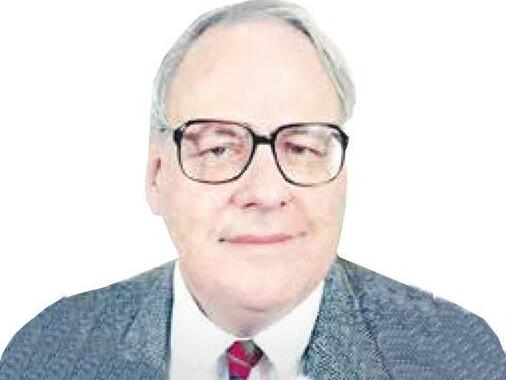

Tmembership amounts to several thousand with one thousand senior officers who led this criminal campaign The arrest trial and punishment of the perpetrators of these crimes is underway and is not the subject of this article Rather I try to examine what should be done with the organizations In the Nuremberg trials of Nazi members and Germany military officers there were claims that it was not a crime to do a
thing if one was ordered to
This defense for murder torture etc was rejected If you murdered someone and the evidence pointed towards you, then you were guilty regardless of the orders or instructions from senior officers The officers of RAB, NSI, NTMC, and DGFI who committed these crimes cannot escape by arguing that they were ordered to do these things The Nuremberg trials set a standard now followed around the world There are probably 1,000 individuals who should be brought to trial for crimes committed over the past 16 years for many the death penalty would not be inappropriate
The very existence of these organizations is a threat to the freedom of Bangladesh society unless their role is limited, well defined, and carefully supervised by Parliament We find historically that new governments initially determined to control these types of organizations, soon find that these groups can do things the new prime minister would like Leaving these four organizations to continue under their present charters would be a very dangerous path to take We suggest some actions that should be taken: As is currently going on, all senior officers in these organizations in the past decade should be arrested and inves-
tigated, while those found guilty of crimes should be sent for trial To handle a substantial burden of the legal and judicial work a set of laws covering procedures rules of evidence penalties and clear rules of jurisdiction should be prepared These new courts would deal with the cases arising from these four organizations Directorate General of Forces Intelligence: The charter of the DGFI should be restricted to gathering intelligence on the military of countries important to Bangladesh DGFI would be forbidden with one exception from carrying out operations within Bangladesh Such information includes Order of Battle of prospective opponents; information including assessment of competence and psychological assessments of senior officers Also warning of intentions of potential enemies to commence armed conflict For example there is a report that in the discussion with India to evacuate or protect former prime minister Hasina, the Indian government had deployed air force units to rescue her if it appeared that the Bangladesh military had lost control of her protection This is the kind of essential information that national leaders need and it is the responsibility of the DGFI to provide Other types of information include weapons systems in use or under development; capacity of industrial support for the military; air force planes and capabilities; along with support facilities Ships in the navy with updated information on capabilities location and missions Also military budgets and support from other states Military attaches would usually be under DGFI direction The records of the DGFI, from its formation in 1972 should be completely destroyed unless they are directly relevant to the organization s newly-defined work Of course those DGFI staff who committed crimes should be arrested and put on trial It is urgent to destroy this organization in its present form so that future national leaders are not seduced by its capabilities
The chief of DGFI would report to Parliament regularly The one exception to internal operation is counter-intelligence activities to identify and rid the armed forces from spies loyal to foreign governments National Security Intelligence: The NSI should be forbidden from any operations within Bangladesh The NSI should have three objectives: Writing reports on politics economics and the overall developments covering countries of importance to Bangladesh The obvious ones are India, China, Japan, SouthKorea, the US, Russia, Nepal, Pakistan, etc Staff should have university level and language training Chinese Korean and Japanese language training are particularly important The NSI should continually train staff in knowledge of target countries
The second activity is operating stations abroad to recruit and manage intelligence sources as well as in specific cases maintain a liaison operation with the intelligence service of the country where an NSI office is located The third activity is counter-intelligence to protect Bangladesh and NSI in par-
ticular, from foreign intelligence organizations Building a new NSI is a task that will take many years but it is essential for the security of Bangladesh There are no nice guys out there NSI leaders should report regularly to Parliament and the organization should avoid engaging in covert operations (assassinations, meddling in elections, etc) Challenges to the sovereignty of Bangladesh are threatened from Myanmar and India and the nation must prepare to defend itself The DGFI and the NSI are essential but both must avoid collecting information or taking action on domestic matters National Telecommunication Monitoring Centre: This organization is responsible for electronic-communication intercepts of email, telephone, VOIP services etc This covers both within Bangladesh and elsewhere particularly in neighbouring states These organizations are very dangerous due to the type and sensitivity of the information that they collect National leaders find use of these intercept operations fascinating, but the NTMC is far too important to eliminate and instead must be carefully controlled There are three objectives: To collect information on Bangladeshi citizens for whom formal approval has been established Second, to carry out intercept operations on foreign persons who are concerned with collecting information on Bangladesh Third to protect Bangladesh from any attacks on infrastructure and thwarting any cyber security threats to our financial and administrative arms
A clearance process is needed that would receive requests to intercept communications and approve or disapprove them according to the rules Any request to the telephone companies for intercepts must be accompanied by legal approval Journalists should never be targeted unless the authorities suspect that the journalist is in the employment of a foreign government The work product of the NTMC must be strictly controlled and access limited to the responsible analysts Rapid Action Battalion: RAB was founded by the BNP with the assistance of the United States to take action against terrorist organizations however, the organization has become an instrument of murder and oppression over the decades, which has resulted in RAB and many of its senior officers having been sanctioned by the United States There are no two ways about it: RAB should be closed down The senior officers, once cleared of crimes, can be returned to their home organizations The record of these four organizations is a stain on the reputation of the military whose members carried out most of these horrible crimes It is urgent to act to prevent any continuation of these organizations in their current state so that they will not in the future commit such terrible crimes against the people of Bangladesh, their own countrymen Forrest Cookson is an economist who has served as the first president of AmCham and has been a consultant for the Bangladesh Bureau of Statistics


E P FA K E pornography
where someone s likeness is imposed into sexually explicit images with artificial intelligence – is alarmingly common The most popular website dedicated to sexualised deepfakes usually created and shared without consent receives around 17 million hits a month The content almost exclusively targets women There has also been an exponential rise in “nudifying” apps which transform ordinary images of women and girls into nudes When Jodie the subject of a new BBC Radio File on 4 documentary received an anonymous email telling her she d been deepfaked she was devastated Her sense of violation intensified when she found out the man responsible was someone who d been a close friend for years She was left with suicidal feelings and several of her other female friends were also victims The horror confronting Jodie her friends and other victims is not caused by unknown perverts on the internet, but by ordinary, everyday men and boys Perpetrators of deepfake sexual abuse can be our friends, acquaintances, colleagues or classmates Teenage girls around the world have realised that their classmates are using apps to transform their social media posts into nudes and sharing them in groups Having worked closely with victims and spoken to many young women, it is clear to me that deepfake porn is now an invisible threat pervading the lives of all women and girls Deepfake pornography or nudifying ordinary images can happen to any of us at any time And at least in the UK there is nothing we can do to prevent it While UK laws criminalise sharing deepfake porn without consent, they do not cover its creation The possibility of creation alone implants fear and threat into women’s lives DEEPFAKE CREATION ITSELF IS A VIOLATION: This is why it s time to consider criminalising the creation of sexualised deepfakes without consent In the House of Lords, Charlotte Owen described deepfake abuse as a “new frontier of violence against women” and called for creation to be criminalised It’s also a debate taking place around the world The
tariq

PRESIDENT XI VOWS GREATER NATIONAL ACHIEVEMENTS, CONTRIBUTIONS TO PEACE, DEVELOPMENT
S TA F F C O R R E S P O N D E N T
PRESIDENT Xi Jinping said on Monday that Chinese people will score more remarkable achievements and make greater contributions to the noble cause of peace and development of humanity Xi, also general secretary of the Communist Party of China (CPC) Central Committee and chairman of the Central Military Commission made the remarks at a reception at the Great Hall of the People in Beijing to celebrate the 75th anniversary of the founding of the People s Republic of China (PRC) China’s National Day falls on October 1 Premier Li Qiang presided over the reception Other Party and state leaders Zhao Leji Wang Huning Cai Qi Ding
Xuexiang, Li Xi and Han Zheng attended the event together with around 3,000 Chinese and foreign guests In his address Xi on behalf of the CPC Central Committee and the State Council first paid tribute to the people of all ethnic groups in China to the officers and soldiers of the Chinese People s Liberation Army and the People s Armed Police Force, and to other political parties and personages without party affiliation Xi extended sincere greetings to compatriots in the Hong Kong and Macao special administrative regions and in Taiwan, as well as overseas Chinese He also expressed heartfelt gratitude to friendly countries and international friends who care about and support the development of the PRC On the new journey in the new era the central task of the Party and the coun-
Pakistan Embassy in Beijing Obser ves Defence and Mar t yrs Day
China decries U.S. militar y assistance approved to Taiwan region
BEIJING
S TA F F C O R R E S P O N D E N T
U S military assistance to the Taiwan region regardless of the amount will not sway in the slightest China s resolve to oppose Taiwan independence and safeguard national sovereignty and territorial integrity a Chinese spokesman said on Monday A statement published on the White House website has announced the U S decision to provide military assistance to the Taiwan region worth around 567 million dollars In response to a related question at a press briefing foreign ministry spokesman Lin Jian said that by providing arms to
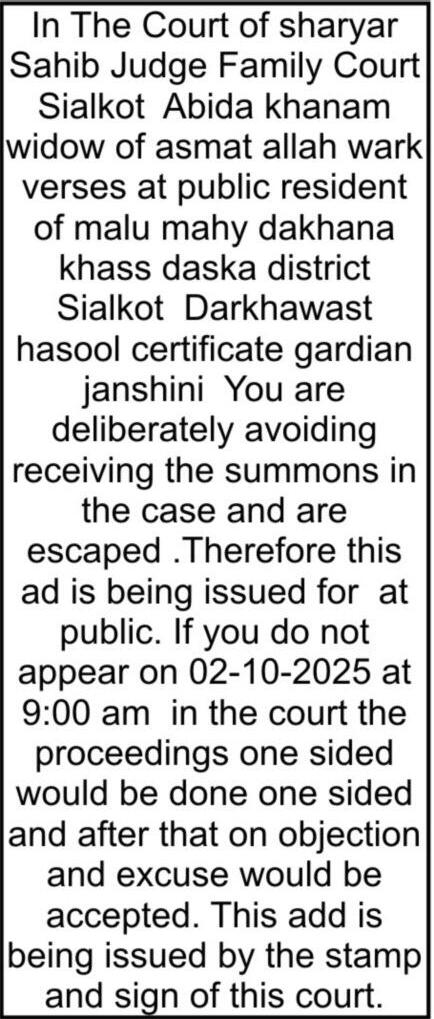

try is building China into a strong country and achieving national rejuvenation on all fronts by pursuing Chinese modernization said Xi Advancing this unprecedented great cause steadily is the best way to celebrate the anniversary of the PRC he stressed Xi emphasized that, to advance Chinese modernization, it is imperative to always uphold the core role of the Party in exercising overall leadership and coordinating the efforts of all sides unswervingly follow the path of socialism with Chinese characteristics deepen reform across the board and expand opening up, uphold a people-centered approach, and remain committed to peaceful development He urged efforts to comprehensively, accurately and unswervingly implement the policies of the One Country Two Systems the people of Hong Kong ad-
ministering Hong Kong, the people of Macao administering Macao” and a high degree of autonomy for both regions to maintain and promote long-term prosperity and stability Efforts must be made to adhere to the one-China principle and the 1992 Consensus and deepen cross-Straits economic and cultural exchanges and cooperation, Xi said, calling for resolutely opposing “Taiwan independence” separatists He said it is imperative to advocate an equal and orderly multipolar world and inclusive economic globalization that benefits all, and advance the implementation of the Global Development
Ukrainian strikes aimed at destabilising Russia, says Ambassador Albert
ISLAMABAD S TA F F R E P O R T Ambassador of Russia to Pakistan Albert P Khorev has termed the Ukrainians attack in the Russian Kursk region as an attempt to undermine the stable domestic political situation in Russia Addressing a press conference on the situation in and around Ukraine war the ambassador said that the strategic initiative on the ground is in Russia s hands along the entire line of contact, the Kiev regime unleashed large-scale military activities against the civilian population of our regions and on August 6 this year the Ukrainian fighters invaded the peaceful, border region of Kursk Ambassador Albert said, “I would like to reiterate that Russia is in favor of a political and diplomatic settlement of the conflict
The conditions for such a settlement if you like the Putin formula , were set out in detail in a speech by the President of Russia on June 14 of this year at the Russian Foreign Ministry ” He said the withdrawal of Ukrainian armed forces from the territories of the Donetsk People s Republic, Luhansk People s Republic, Kherson and Zaporozhya regions of Russia, Kiev’s refusal to join NATO, the abolition of all illegal sanctions against Russia adopted without the approval of the UN Security Council and respect for the rights of the Russian-speaking population of Ukraine
The Russian envoy said that an early negotiated end to the conflict will benefit Russia and Ukraine as well as countries in the Global South, including Pakistan Russia is a reliable trade and investment partner that offers opportunities for equitable mutually beneficial cooperation with Pakistan he added Ambassador Albert said the lifting of illegal Western sanctions on the transportation of Russian products would significantly contribute to Pakistan’s energy and food security as Russia is the largest exporter of nitrogen phosphate and potassium fertilizers and has vast oil and gas reserves
The escalation of geopolitical tensions provoked by the West is largely due to the changing nature of the global world order to maintain its world domination at any cost on the basis of the ancient principle of Divide and Rule he added
The Russian envoy said that against the backdrop of changing economic patterns and the emergence of new centers of power they rapidly losing its monopoly in a number of areas particularly in the area of development financing
But what kind of negotiations can we talk about with a regime that attacks civilians, threatens the entire world with nuclear catastrophe and seeks to attack nuclear power plants he questioned
According to statistics since the beginning of the special Military Operation, 39,005 shelling incidents have been recorded in this
region which has suffered the most at the hands of the Kiev regime including 38 063 with the use of heavy weapons he added Ambassador Albert said that over this period, 5,063 civilians, including 151 children, were killed on the territory of Donbass 6 944 people including 466 children were injured with varying degrees of severity 164 civilians including 11 children, were blown up by Lepestok anti-personnel mines
Three victims died as a result
He said that in total 9 437 people including 242 children were killed and 1 763 people including 935 children were injured in the Donetsk People s Republic between 2014 and 2024
In the Zaporozhya region, the Ukrainian armed forces regularly shell the Zaporozhya nuclear power plant the largest civilian nuclear facility in Europe endangering the lives not only of the region s inhabitants, but also of the entire continent, he said The Russian envoy said the fact of the shelling, which once again brought the world to the brink of disaster was recorded on August 11 this year by IAEA Director General Rafael Grossi The situation around the Kursk nuclear power plant, which is being attacked by Ukrainian drones, is no less tense, as Mr Grossi was again able to see for himself on August 27 this year he said He said that settlements and civilians in the Belgorod Bryansk Kursk Orel and Kherson regions have recently been subjected to regular enemy shelling
Trump esc alates personal attacks on rival, c alls Harris ‘mentally impaired ’
NEW YORK
A G E N C I E S
Republican presidential nominee
Donald Trump has escalated his personal attacks on his Democratic rival, Kamala Harris, by repeating an insult that she was “mentally impaired” while also saying she should be “impeached and prosecuted” Trump s rally on Sunday in Erie Pennsylvania took on similar themes as an event the day before that he described as a dark speech He claimed in front of a cheering crowd on Sunday that Harris was responsible for an “invasion” at the United States-Mexico border and told them she should be impeached and prosecuted for her actions
Crooked Joe Biden became mentally impaired,” he added “Sad But lying Kamala Harris, honestly I believe she was born that way There s something wrong with Kamala And I just don t know what it is but there is definitely something missing And you know what, everybody knows it With about a month until the election Trump is intensifying his use of personal and offensive at-

tacks, even as some Republicans say he would be better off sticking to the issues that concern voters Trump has long threatened legal action against his rivals including President Joe Biden and his 2016 rival, Hillary Clinton Trump has many legal problems of his own He was convicted in May of falsifying business records in a hush money case in New York with sentencing scheduled for November 26 Two other cases are pending – a federal case for his alleged role in the January 6, 2021, insurrection, and a state case in Georgia for his efforts to overturn his 2020 loss there to Biden Prosecutors are appealing against a federal judge s dismissal of a case involving his handling of classified documents
Trump argues federal and state prosecutors are targeting him for political reasons There is no evidence to suggest that is true
On Sunday Trump acknowledged he might lose in November: If she wins, it s not going to be so pleasant for me, but I don’t care ”
Trump has derided Harris, the first Black woman and person of South Asian descent to lead a major party
ticket, as “stupid”, “weak”, “dumb as a rock” and “lazy” His allies have pushed him publicly and privately to talk instead about the economy immigration and other issues I just think the better course to take is to prosecute the case that her policies are destroying the country,” Senator Lindsey Graham told CNN’s State of the Union programme on Sunday when asked about Trump s comments describing Harris s policies as crazy liberal When asked whether he approved of Trump’s personal attacks on Harris, Republican Tom Emmer sidestepped the question during an interview on ABC s This Week I think Kamala Harris is the wrong choice for America said Emmer, who is helping Trump s running mate JD Vance prepare for Tuesday’s vice presidential debate “I think Kamala Harris is actually as bad or worse as the administration that we ve witnessed for the last four years When pressed, Emmer said: I think we should stick to the issues The issues are – Donald Trump fixed it once – they broke it He’s going to fix it again Those are the issues
CORPORATE CORNER
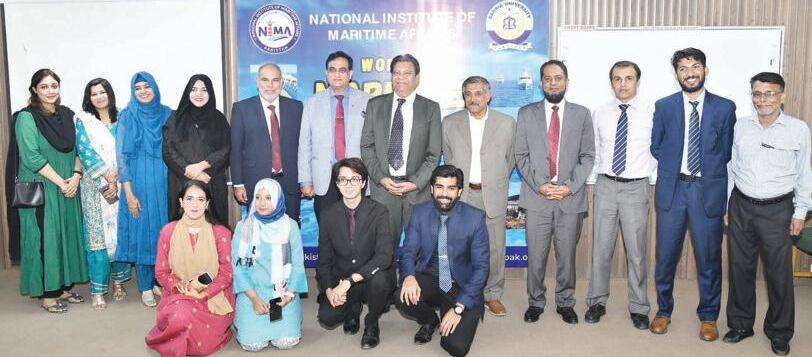
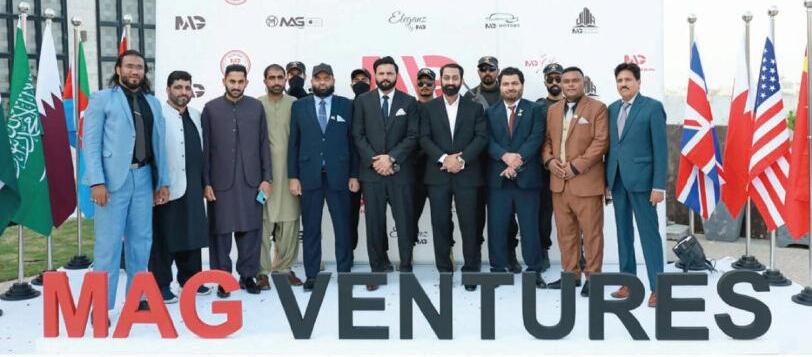
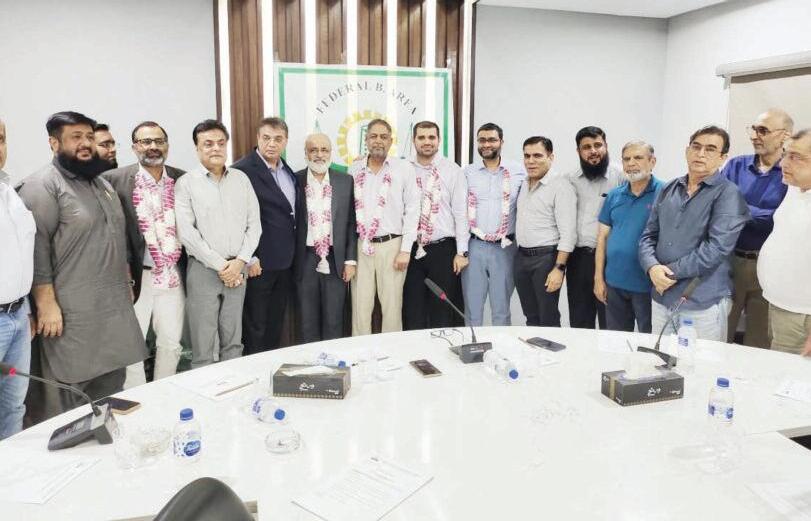

CORPORATE CORNER
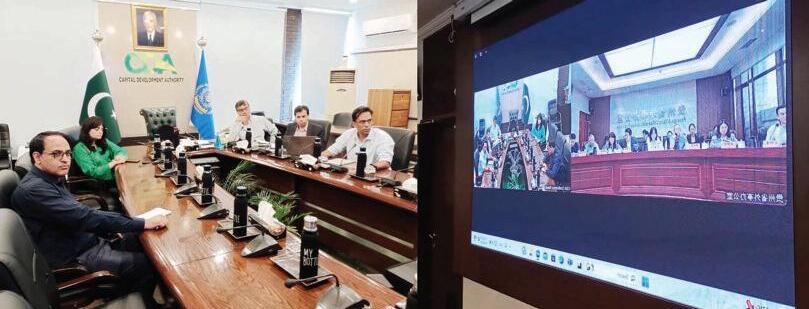
GOVT MANDATES 60%
SECTOR IMPORTS THROUGH GWADAR PORT
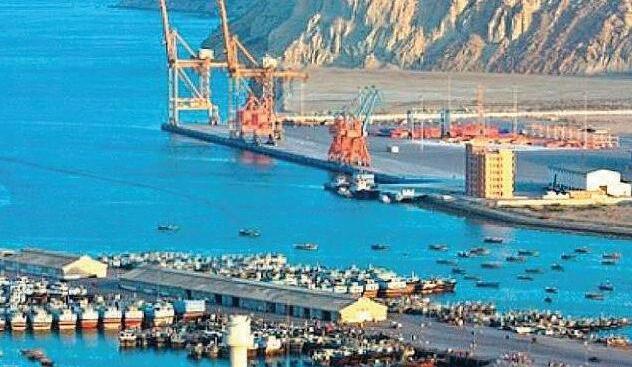
European Union suppor ted Exhibition and Experience Sharing dialogue on Nutrition Innovations held in Sindh
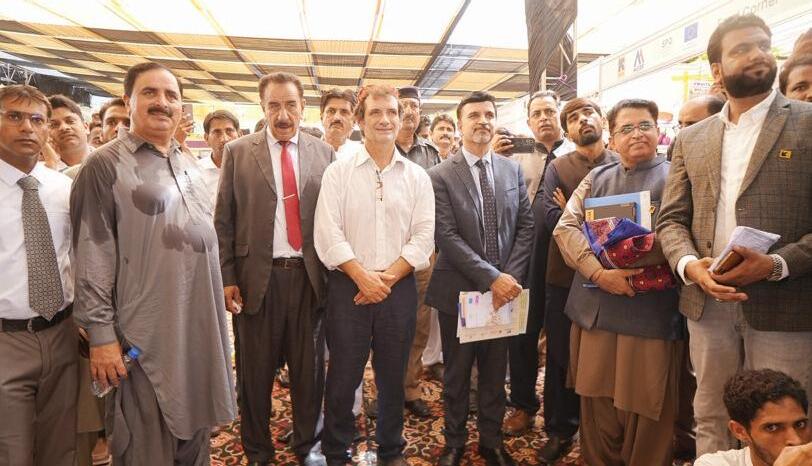
A two-day event titled "Nutrition Care Synergies Experience Sharing and Innovations Showcase was held at Shah Abdul Latif University (SALU) Khairpur, by International Rescue Committee (IRC) in collaboration with Department of Health Sindh, Accelerated Action Plan Taskforce (AAP TF), Strengthening Participatory Organization (SPO) and Medical Emergency Resilience Foundation (MERF) The Nutrition Exhibition and experience sharing event brought together experts and stakeholders from various government, UN, and International, national and local non-government organizations to discuss strategies, innovations, and experiences in combating malnutrition in Pakistan Organized in the frame of the EU funded Project
Aleem Khan Leads Privatization Board, Forms Committee for Transparenc y
In the important meeting of the Privatization Commission Board under the chairmanship of Federal Minister for Privatization, Board of Investments & Communications Abdul Aleem Khan, it has been decided to form a Negotiating Committee for the privatization of institutions Federal Minister for Privatization Abdul Aleem Khan has directed that the process of privatization should be completed in the atmosphere of competition and the goal of success be ensured so this process can be ensured as transparent as possible While presiding over the 225th session of the Privatization Commission Board, Federal Minister for Privatization, Board of Investment and Communications Abdul Aleem Khan said that after privatization of the institutions marketing and the sales sector of those departments should remain on high pitch He added that these institutions being privatized should be successful in addition to
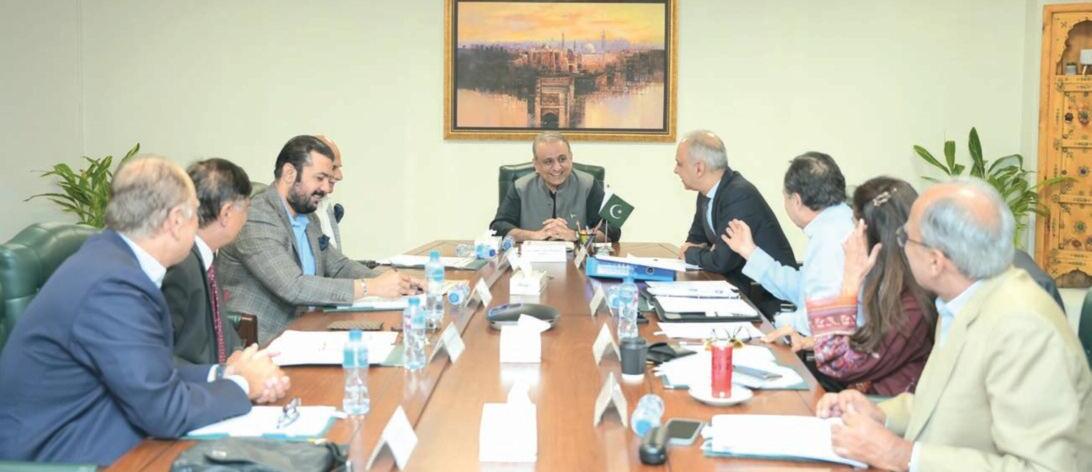
earning revenue for the Government In the meeting of the Privatization Commission Board instructions were issued by the Federal Minister to the Department that the advertisements given in the newspapers for privatization should be made part of the relevant file which is also necessary for He added that legal regulations should be implemented fully in the process of privatization In the meeting, issues related to the privatization of more institutions including Agricultural Development Bank and Utility Stores were also discussed while the appointment of Financial Advisor was also came under dis-
UNICEF delegation visits BISP HQS to learn from BISP social protection & cash transfers initiatives
ISLAMABAD
S TA F F R E P O R T
A delegation from United Nations International Children s Emergency Fund (UNICEF), visited the Benazir Income Support Programme (BISP) headquarters today to study BISP’s successful social protection and cash transfer programs for potential implementation of the similar programmes in other countries as well The delegation included prominent representatives of UNICEF from various countries: Abdullah Fadil Representative of Pakistan Alice Akunga, Representative of Nepal, Andrea James, Representative of Bhutan, Cairan O Toole, Regional Chief of Programme, Christian Skoog, Representative of Sri Lanka Cynthia McCaffrey Representative of India Edward Addai Representative of Maldives Noala Skinner Deputy Regional Director Pia Rebello Britto Global Director of Education
Sateri Targets Increased Share of Growing Lyocell Market in Pakistan
KARACHI S TA F F R E P O R T
Sateri a leading global producer of man-made cellulosic fibre (MMCF) is set to enhance its presence in Pakistan s burgeoning Lyocell market Sateri s focus on Lyocell aligns with the increasing demand for sustainable textiles

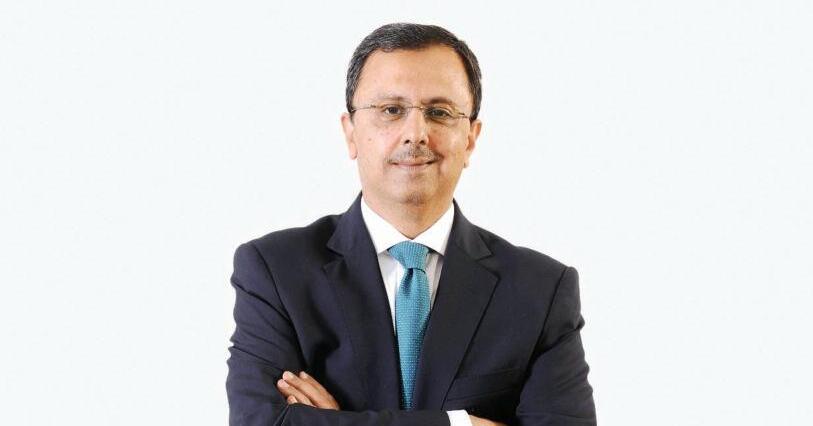
cussion Apart from this important decisions were also taken while discussing technical matters in the meeting Federal Minister invited all the Members of the Privatization Commission Board to be more active and participate in the PCB to speed up the process Briefing the meeting of the Privatization Commission Board, the Federal Secretary told that all relvent issues have full legal protection therefore all the process is being carried out as per the rules Members of Privatization Commission Board approved various decisions
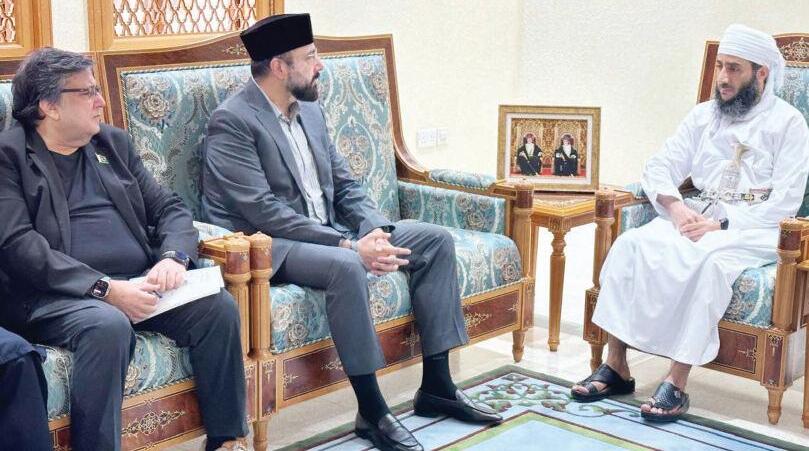

the Government of Oman in promoting tolerance and unity within the Muslim Ummah and praised the country s leadership for their balanced and progressive approach in
facets of
for
He emphasized the importance of
interfaith dialogue and the
and the whole
Sheikh Kahlan Al Kharusi highlighted the historical and religious connection between the two countries He emphasized the importance of providing more exposure to Muslim youth
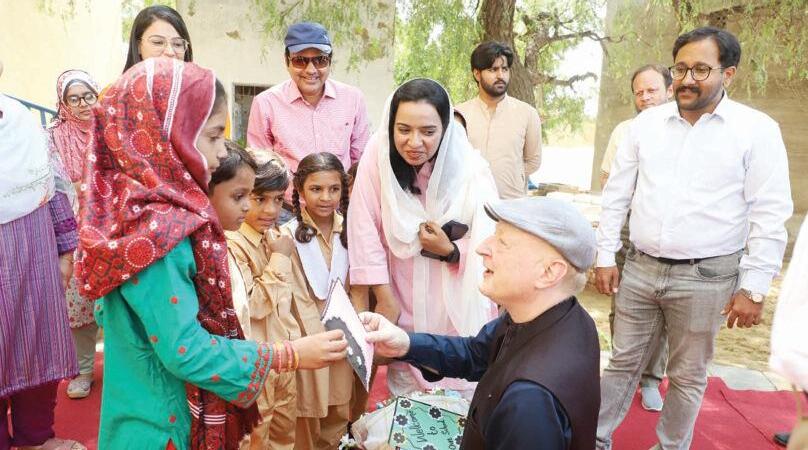

WANTS
which mandates that 35 percent of gas from future discoveries be auctioned to the private sector through competitive bidding The Council of Common Interests (CCI) on January 26 2024 approved the amended Exploration & Production (E&P) policy, stipulating the allocation of 35 percent of gas from future discoveries to the private sector The CCI’s decision required the Petroleum Division to submit
an implementation framework to the Executive Committee of the National Economic Council (ECNEC) for approval However, despite the passage of eight months the Petroleum Division has yet to present the framework to ECNEC further delaying the policy s implementation As per sources the task force led by Deputy Prime Minister Ishaq Dar, has held four meetings since the CCI decision, with Petroleum Minister Musadik Malik attending only the first two Malik’s absence has reportedly caused frustration among task force members as the decision s enforcement is seen as crucial to attracting significant investment in the energy sector Sources suggested that Malik’s reluctance stems from his opposition to allocating 35% of future gas finds to the private sector as he believes the matter warrants reconsideration by the CCI While sources close to the task force have indicated that Malik is employing delaying tactics to prevent a final decision, the petroleum minister has denied these allegations When approached for comment Musadik Malik clarified that his absence from recent meetings was due to prior engagements including his participation in the Russian Energy Week in Moscow He emphasised that he is not opposed to the policy and that his ministry is actively working on a framework to implement the CCI s decision In the absence of the petroleum minister, the task force continues to address other critical issues related to the energy sector In
Hamas leader
Lebanon, Hezbollah officials among the dead
BEIRUT A G E N C I E S Palestinian group Hamas announced on Monday that its leader in Lebanon Fateh Sherif Abu el-Amin was killed in an Israeli airstrike
The strike also claimed the lives of his wife, son, and daughter in a Palestinian refugee camp in the southern city of Tyre The strike comes amid escalating hostilities as Israel continues its attacks against Iran s allies in the region Additionally the Popular Front for the Liberation of Palestine (PFLP) stated that three of its leaders were killed in another Israeli strike in Beirut’s Kola district
The airstrike targeted the upper floor of an apartment building according to witnesses This marks the first strike within Beirut s city limits further intensifying fears of a broader regional conflict
There has been no immediate comment from Israel’s military on either strike Israel’s increasing frequency of attacks against Hezbollah in Lebanon as well as the Houthi militia in Yemen has raised concerns that the Middle Eastern conflict could spiral out of control, potentially involving Iran and Israel’s main ally, the United States
Hezbollah, which is supported by Iran, has retaliated by targeting Israeli sites in response to Israeli attacks on Lebanese civilians Hezbollah’s leader Sayyed Hassan Nasrallah was killed earlier in an Israeli airstrike further escalating tensions Israel continues its assault, aiming to secure its northern areas, which have been heavily affected by Hezbollah rocket attacks The situation in Lebanon has been dire with the health ministry reporting that Israeli airstrikes killed at least 105 people on Sunday Over the past two weeks, more than 1,000 Lebanese have been killed, with more than 6,000 wounded, according to the ministry although they did not specify the number of civilian casualties
The government has reported that a million people or a fifth of Lebanon s population, have fled their homes Israeli drones hovered over Beirut on Sunday and new airstrikes were reported in the city Families displaced by the conflict have sought refuge in areas like Zaitunay Bay, a waterfront area with restaurants and cafes Israel has primarily focused its attacks in southern Lebanon, where Hezbollah operates but Monday’s attack
in the Kola district marked the first within Beirut s central area Israel also launched airstrikes in Yemen, targeting Houthi militia strongholds The Houthi-run health ministry reported that at least four people were killed and 29 were wounded in the port city of Hodeida, a key location for humanitarian aid and fuel imports
These strikes were in response to Houthi missile attacks on Israel with the Houthi group claiming responsibility for an attempted strike on Israel s Ben Gurion Airport as Israeli Prime Minister Benjamin Netanyahu returned from New York Israeli military spokesman Captain David Avraham confirmed that dozens of aircraft including fighter jets attacked military-use targets in Hodeida and Ras Issa in Yemen Earlier Israel had targeted Hodeida port in July, causing significant damage after a Houthi drone attack killed a civilian in Tel Aviv The airstrikes in Lebanon and Yemen are part of a broader campaign by Israel which has also been striking Hezbollah s leadership In addition to Nasrallah, other top Hezbollah officials, including Nabil Qaouq, a member of the group’s central council, were killed in the recent strikes
Pak istan ac tivates crisis unit for nationals in Lebanon amid Israeli strikes
the establishment of the rest of the tribunals within a week Chief Justice Isa observed that the ECP s job was to conduct elections, while it was the high court, which would settle a dispute if any Earlier, on June 21, the Supreme Court had turned down the Election Commission of Pakistan (ECP)’s request to suspend the Lahore High Court (LHC) s order regarding the formation of election tribunals in Punjab
The court, however, referred the matter to the committee, set up under the terms of the SC Practice and Procedure Act, 2023, as the matter involved the interpretation of provisions of the constitution and the Election Act 2017 A two-member bench comprising Chief Justice Qazi Faez Isa and Justice Naeem Akhtar Afghan heard an appeal of the commission
It issued notice to the Attorney General for Pakistan under Order XXVII of SC Rules to assist the Court and arrayed Salman Akram Raja and others as party in the matter
